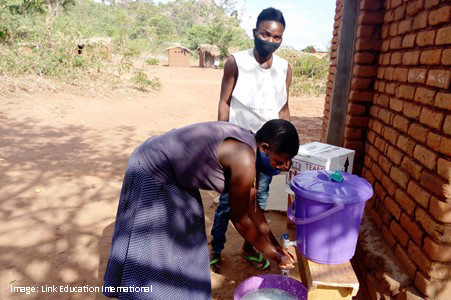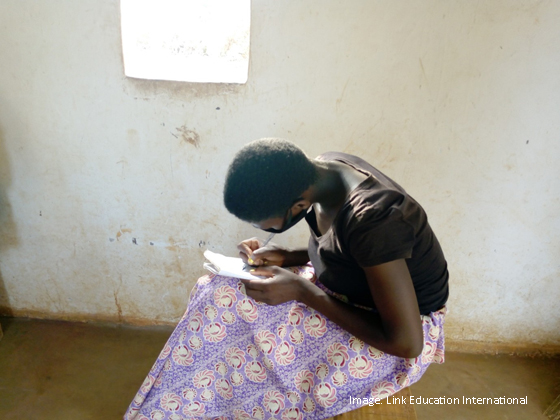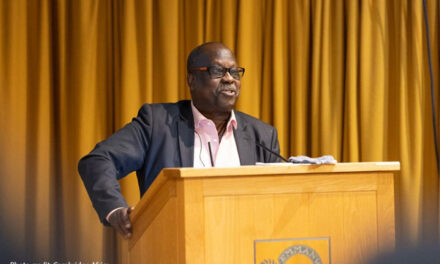This blog was written by Kate Sykes, International Programme Manager for Link Education International.
Link Education International leads a consortium of organisations delivering the TEAM Girl Malawi project, which provides complementary basic education (CBE) to out-of-school adolescents. The project adapts the Government’s CBE curriculum, which covers the first four years of primary school in the space of two years, to make it accessible to young people who are experiencing educational marginalisation. TEAM’s participants face multiple and intersecting barriers to learning, including poverty, early marriage and motherhood, child labour and disability. The project operates in 40 communities in Dedza, Mchinji and Lilongwe Urban districts, where 2,000 girls and 400 boys were enrolled in 2020.
In response to the global COVID-19 pandemic, the Malawi Government closed all schools and learning centres in March 2020 and they remained closed until early 2021. The Government rapidly sought to support home learning by making radio programmes and online learning available for different subjects and levels of primary and complementary basic education.
However, most TEAM participants did not have access to the technology needed to make use of these resources. We were able to carry out a rapid assessment with just 12% (287) of participants who had a working phone and found that:
- 69% of these phones did not have internet capability.
- 44% of learners had access to a radio in their household, either through a radio itself or a phone. This was higher in urban than rural areas.
- 41% indicated that they both had access to a radio and would be allowed to use it in the household to listen to the educational radio programme. Gender and other marginalisation factors may affect access to technology within households.
- Given the high level of poverty among the learners, it is reasonable to assume that learners without mobile phones are also less likely to have radios.
- In October, the project followed up with 64 learners in a tracer study and found that only 8 learners (13% of this group) had been able to continue studying by radio.
As a result, the project decided that most TEAM learners would not be reached by distance teaching methodologies which rely on technology. Instead, we provided home learning packs including books, worksheets, pens and paper, and re-trained CBE facilitators to support home learning. We also provided information to parents and community members about how to help students to continue learning while at home.
Facilitators met their learners once a week in groups of three or four at a location within the community which was suitable and easily accessible. They supported students to complete home learning journals to reflect on their learning progress and helped them with any challenges. Facilitators also visited learners with disabilities at home to discuss any additional support needs with them and their parents.
In-person teaching was achieved as safely as possible by teaching in small groups to allow for social distancing, and providing masks, additional handwashing facilities and extra staff training in line with government guidelines. Facilitators received training on COVID-19 prevention and training sessions modelled the use of masks and social distancing which the Facilitators would have to use.
 Working with the Government, we reduced the number of subjects in the curriculum to give more time to core subjects like literacy, numeracy and life skills. 21% of learners reported feeling more anxious, so in addition to the academic work, facilitators covered COVID-19 prevention and emotional resilience activities with their students.
Working with the Government, we reduced the number of subjects in the curriculum to give more time to core subjects like literacy, numeracy and life skills. 21% of learners reported feeling more anxious, so in addition to the academic work, facilitators covered COVID-19 prevention and emotional resilience activities with their students.
While students are keen to return to their normal classes where they enjoy being with their friends, some of the home learning adaptations will be continued as they have been beneficial to some of the most marginalised learners.
Overall, attendance at the learning centres was around 60% before the pandemic. While the project continues to work with communities to reduce barriers to attendance, we recognise that the reality for many learners is that a complex combination of demands on their time due to motherhood, marital status, hunger, and disability, mean that they will often miss classes. Maintaining the same number of meeting times while reducing the number of subjects means that if a learner misses a class, they will have time to catch up at the next meeting. More time spent on core subjects means learners have a strong grasp of the content, and Facilitators will be able to offer more targeted remedial support to learners. The streamlined curriculum is now being adopted by the Government’s CBE programme.
The project also plans to continue providing home learning activities to complement classroom instruction. This will help to reinforce learning, provide extra opportunities to practise key skills such as writing, support those who have missed classes to catch up, and give more confident learners the chance to keep developing their skills.
As facilitators now teach individually in isolated groups, rather than as a team, the project has taken measures to strengthen peer support networks through WhatsApp, and by encouraging Facilitators to continue with weekly meetings in a safe way to share challenges and solutions. An inclusive education helpdesk via WhatsApp has also been launched, allowing Facilitators to ask questions and receive advice from disability and inclusion experts.
The adaptations appear to be effective. In a follow-up survey, over 95% of students asked about their learning experience said that they found the content useful and teaching of good quality. 75% of learners reported that they felt they were progressing well, and this is supported by the data from termly tests. Disaggregating our data by disability and other marginalisation factors allows us to continue adapting our services to meet all learners’ needs. We found that learners with some types of difficulties were performing less well than the overall cohort, while in contrast learners with seeing difficulties were out-performing their peers in maths. This means we can target professional development support to build facilitators’ skills to teach all learners.
A cycle of adaptation, reflection and learning means we are continually improving our inclusive teaching. “I am now able to believe in myself and to make good decisions about my life” said one TEAM Girl Malawi participant.





